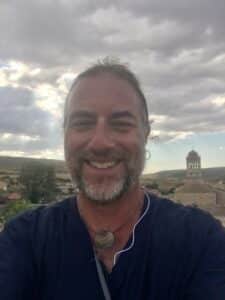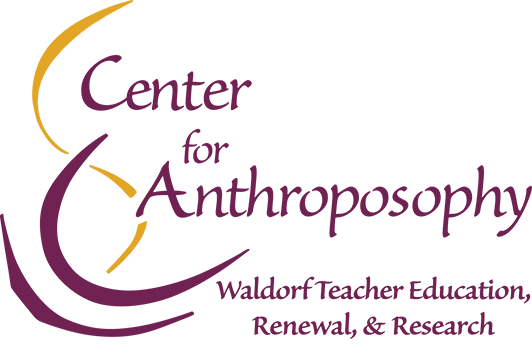CfA's Op Ed
Keep the Shakespeare, Add the Toni Morrison:
High School Education in Waldorf’s Second Century
by David Barham
Adapted from a keynote talk to the Convocation of Antioch and Waldorf High School Teacher Education Programs in the Pine Hill auditorium, Wilton, New Hampshire, on Saturday, July 9, 2022.
During the first 100 years of the international Waldorf movement, we had much to be proud of––a century of striving to meet the true physical, soul, and spiritual needs of individuals and the planet. And now, here we are, post 100-year anniversary, approaching post-Covid-19, ready to look ahead to prepare for the future, rather than look back to celebrate the past.
Waldorf education is uniquely suited to meet the needs of the present moment and the years ahead. We begin with what we do so well: understand human beings as spiritual beings and honor the archetypal pathway of human development. This is the rock-solid foundation that will always distinguish Waldorf education from other approaches. The human being––treated individually and collectively––is the central concern and field of study of our movement.
Then we look out into the world and we see a world that needs help. A world nearly overwhelmed by climate crisis, by an epic political battle pitting the forces of democracy against rising authoritarianism, and by a reckoning with racial, social, economic, and sexual, gender, and reproductive discrimination. Truly, we live and are teaching in a world on fire. A tremendous amount is being asked of us. And we can offer true human care to meet the moment.
People have said our movement can’t meet the present and the future because it is too eurocentric. Too white. Too compromised by colonized thinking. Too hampered by tradition and old ways of thinking. That we have allowed our quest for the Good, the Beautiful, and the True to keep us from speaking truth to power. That our desire to protect the endangered kingdom of childhood keeps us from exploring the darker truths of the world with our students.
So, the next phase of Waldorf education is to combine our deep and powerful understanding and commitment to a developmental approach with the realities of this world and this present moment. The truth will set us free. It is not a political act to teach truth––it is a political act to run away from teaching truth.
We teach about the truth of the human impact on global climate change not as a political statement, but because we love the Earth. We teach our children––from the earliest days in the parent-toddler, nursery, and kindergarten classes through the end of the high school years––to love the Earth. Through their example, the “Priestesses of Earth” (meaning EC teachers, a term which I love and learned in my own Waldorf teacher training here some 30 years ago) show the youngest children that the Earth is our home and that we treat our home, our Mother, with love and respect. We learn her rocks, her plants, her animals, and her complex systems because they are part of us and we are part of them.
Teaching about justice is not a political issue. The fact that some politicians have created this critical-race-theory boogieman is not our cross to bear. Our work is to honor each and every human being as a spark of the Divine. We don’t expand the stories we tell, the books we read, the biographies we study, the festivals and rituals we learn about and participate in out of some politically correct obligation or duty. We do so out of love for the world’s diversity, and for the human beings sitting in front of us in our classrooms.
When high school humanities teachers, who love Wolfram von Eschenbach’s Parzival with all of their heart and soul, consider how the Autobiography of Malcolm X allows students to wrestle with some of the same themes––not knowing one’s true name and true self, the value of failure, the epic power of metamorphosis and rebirth––they are not throwing out babies and bathwater. They are acknowledging the depth and power of the indication that the 17-year-old one needs to encounter all of this. A teacher may decide to continue teaching Parzival, or exchange it for Malcolm X. My own humanities department chose to assign Malcolm X for summer reading and then read Parzival in school, comparing and contrasting the struggles, failures, and triumphs of these two epic figures. By struggling to understand the true soul and spirit needs of the 17-year-old one, and of every age, we can make Waldorf education new, different, and contemporary while still anchoring it in the archetypal truth of the path of human development.
I have taught Toni Morrison’s magnificent work Song of Solomon to mixed classes of 11th and 12th graders for the past three years. Every year students tell me it is one of the most beautiful, meaningful, and powerful books they have ever read. One doesn’t add Pulitzer, Nobel, and Presidential Medal of Freedom prize winner Toni Morrison to the Waldorf high school curriculum to be politically correct; one does so because her books and her being change our lives forever, revealing depths of beauty and mystery we might not have been aware existed. As she lay dying, the extraordinary character of Pilate says, “I wish I’d a knowed more people, I would of loved ‘em all. If I’d a knowed more, I would a loved more.” And the final sentence of the book stays seared into one’s soul forever:
He leaped. As fleet and bright as a lodestar he wheeled toward Guitar and it did not matter which one of them would give up his ghost in the killing arms of his brother. For now he knew what Shalimar knew: If you surrendered to the air, you could ride it.
My political Waldorf banner and my approach to Waldorf education in 2022 and beyond is as follows: Keep the Shakespeare. Add the Toni Morrison. (I’m going to put that on a bumper sticker someday!)
So yes, it was lovely to celebrate the first 100 years. The international Waldorf movement got it right with its threefold focus on what is now called The First Teachers Course (known in earlier translations as Study of Man or Foundations of Human Experience), the child study, and bees: perhaps the Holy Trinity of Waldorf Education! But our best years are ahead of us. We can be the educational movement that decolonizes the teacher’s mind and the curriculum without losing the heart and soul of Waldorf education. We can expand it, make it more Universal, and speak to more and more young people and families.
Not political, but anthroposophical. We are teaching when the world is on fire and our past can guide us to meet and shape the future. We can be Pedagogical Firefighters with both light fires that inspire and bring healing to a world enflamed.
So here is to the future! A future of a deeply human-centered Waldorf education in independent schools and public charter schools, in home schools, and wherever an inspired teacher strives to meet the body, soul, and spiritual needs of young people and the natural and human communities in which they play out their lives.
In closing, I will share a call to arms from Bayard Rustin, the great African American civil rights leader who said, “We need, in every community, a group of angelic troublemakers.” So, dear friends, let’s join together and be the angelic troublemakers the children, young people, and families of this world are calling for. We’ve got real, meaningful, important work to do.

David Barham, newly appointed as Director of the Waldorf Teacher Education Program (WHiSTEP) at Center for Anthroposophy (CfA), is a long-time Waldorf subjects, class, and high school teacher. He currently also serves as the Northeast/Quebec Regional Leader on the Leadership Council of the Association of Waldorf Schools of North America (AWSNA). He can’t wait for the arrival of his grandchild number two in mid-October!
Join David Barham for his two sessions at the Fall 2022 online seminar Starlight Rays in Darkened Times: Seminars on Contemporary Topics for Waldorf High School Teachers. Click here for more information.
